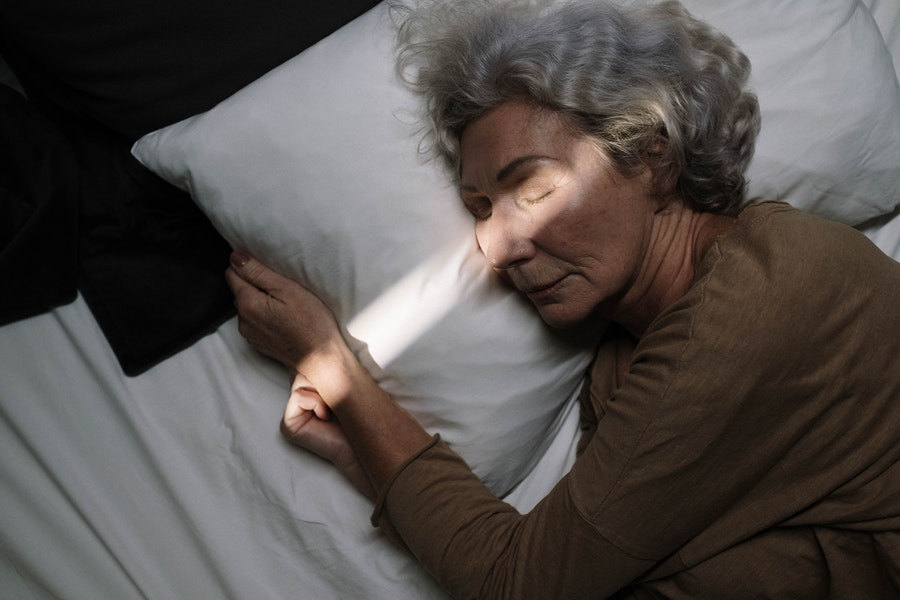


What does lack of sleep and dementia have in common?
It is well-documented that lack of sleep can have dire consequences on the health of your body. It drives up stress levels and blood pressure, lowers your pain tolerance, and leads to diabetes.
Sleep is the most important thing for your brain to function correctly. As if there aren’t already enough reasons for you to get your eight hours of sleep, there is one more reason. Shortages of sleep can cause memory loss and dementia.

Chronic sleep deprivation is a condition in which you don’t get enough sleep over a long period. Sleep deprivation is common among older adults, but it can also be a problem for younger people who work long hours or have to care for children or other family members.
The following are signs and symptoms of chronic sleep deprivation:
Daytime drowsiness or fatigue
Difficulty concentrating and remembering things ( including difficulty remembering new information)
Irritability, anxiety, and depression
Poor decision-making skills
Lack of energy
Reduced creativity and problem-solving skills

Researchers have studied the link between lack of sleep and dementia. They discovered that people who don’t get enough sleep are more likely to develop dementia later in life.
As we age, our brain loses some of its ability to function properly. We know this as cognitive decline. It’s common to see this in people over 65 and even more common in those over 85. But what if you could slow down this process?
Poor sleeping habits can make cognitive decline worse than otherwise, causing memory loss and other problems in older adults who don’t get enough restful sleep each night. One study found that seniors who slept less than six hours per night were twice as likely to develop Alzheimer’s disease than those who slept over seven hours per night!

Several studies have shown that the older you are, the more likely you are to suffer from insomnia. In fact, according to the National Sleep Foundation, 30 to 48% of older adults have insomnia. “Nearly 75% of people over 65 say they have trouble sleeping.” But why is this? It may be due to several factors:
Age-related changes in circadian rhythms and sleep-wake cycles
Physical discomfort such as pain or stiffness (for example, arthritis)
The psychological distress caused by health problems like depression or other mental health issues

According to recent data, about 70 million Americans suffer from chronic sleep disorders.
Sleep deprivation is a serious issue affecting many people’s lives and health. Poor sleep habits can lead to memory loss, difficulty concentrating and learning new information, weight gain or weight loss resistance, depression, and anxiety.
These issues can take their toll on the average person’s life by making it more difficult for them to function at work or school and in personal relationships with others.
Some people may also develop physical ailments such as heart disease or diabetes if they don’t get enough restful sleep each night due to symptoms like insomnia (chronic lack of restful sleep).

Sleep deprivation has a significant impact on memory. There are three main categories of memory: short-term, working, and long-term.
Short Term – Is your ability to remember things at the moment
Working Memory – Is the capacity to hold information in your mind while you work with it
Long Term Memory – Is the ability to store information over a long period
Short-term memory loss occurs when you haven’t had enough sleep. If you’re tired, your brain has difficulty concentrating on the task at hand, and it can be hard to retain new information.
You’ll forget what people have just said or not be able to recall where you put things like keys and phones. In addition, you might start daydreaming more often or lose your train of thought during conversations or lectures.

If you’re still not convinced that sleep is important, consider some of the long-term effects of sleep deprivation. Sleep deprivation can lead to memory loss, dementia, and other cognitive problems.
It can also cause depression, anxiety, weight gain, and it increases your risk for heart disease and high blood pressure as well.
If you don’t already get enough hours of sleep or have insomnia regularly, try to make changes so that you’re getting plenty of rest each night by following these tips:
Set an early bedtime
Cut down on caffeine after noon
Make sure your bedroom is dark and quiet
Limit alcohol before bedtime
Spend some time relaxing in bed before lights out
Practice relaxation techniques like meditation or deep breathing before bed

Clears Away Toxins – Sleep is the time when your body does its best repair work. It’s when your brain clears away toxins and repairs damage to cells, which helps prevent mental decline.
Reduces Inflammation – Sleep helps reduce inflammation in the body and brain. Inflammation is one cause of many health problems, including Alzheimer’s disease. When you’re not getting enough sleep, your body produces more cortisol (the stress hormone), which increases inflammation in the body and brain.
Stores Long-Term Memories – The brain needs time to process information during sleep to store it in long-term memory. During REM (rapid eye movement) sleep — the phase of sleep where we typically dream — your brain replays recent experiences so you can store them as long-term memories.
Strengthens Procedural Memory – Sleep appears to help with procedural memory. This is the ability to learn how to do something, such as riding a bike or playing an instrument, and declarative memory. It also includes facts about the world that you can consciously recall, such as names and dates of birth.

A good night’s sleep is essential for seniors. But many older adults have trouble sleeping because of health issues, medications, or other factors. If you’re a senior, here are some tips to help you get a better night’s rest:
Limit Daily Naps – Too many naps can interfere with nighttime sleep and cause your body to be awake longer than normal.
Keep a Regular Bedtime Schedule – Set your alarm clock for the same time every night, even on weekends and holidays. Don’t allow yourself to sleep in too much on weekends if you want to maintain a healthy sleep pattern.
Avoid Alcohol and Caffeine Before Bedtime – Alcohol can make it harder to fall asleep and stay asleep, while caffeine can cause sleep disturbances later in the evening. Avoid these substances at least four hours before bedtime.
Minimize Screen Time Before Bedtime –The light from computer monitors, smartphones, and televisions suppresses melatonin production (a hormone that regulates our sleep cycle), making it harder to fall asleep and stay asleep, according to the National Sleep Foundation (NSF). Avoid using these devices at least an hour or two before bedtime each night.
Keep Your Room Dark and Quiet as Possible – If street lights or other light sources are coming through your windows, use curtains or blinds to block them out. Make sure that no noises in your bedroom (such as ticking clocks) could disturb you during the night.
Use a Comfortable Bed and Pillow – If your mattress is old or uncomfortable, consider replacing it with a new one. Also, make sure that your pillow is supportive and comfortable. If you use an adjustable bed, put the settings at the right level.

Sleep researchers have long called attention to the importance of good sleep habits to stave off Alzheimer’s disease or other kinds of dementia.
In short, it’s safe to say that sleep deprivation can cause memory loss. If we continue to limit our sleep, we risk developing even more serious cognitive illnesses like dementia.
To prevent this from happening, getting plenty of rest is important, particularly during parts of our lives when we’re under significant pressure.
Remember—your body needs sleep! The best thing we can do is to help spread the word on the importance of sleep, focusing on both quantity and quality.